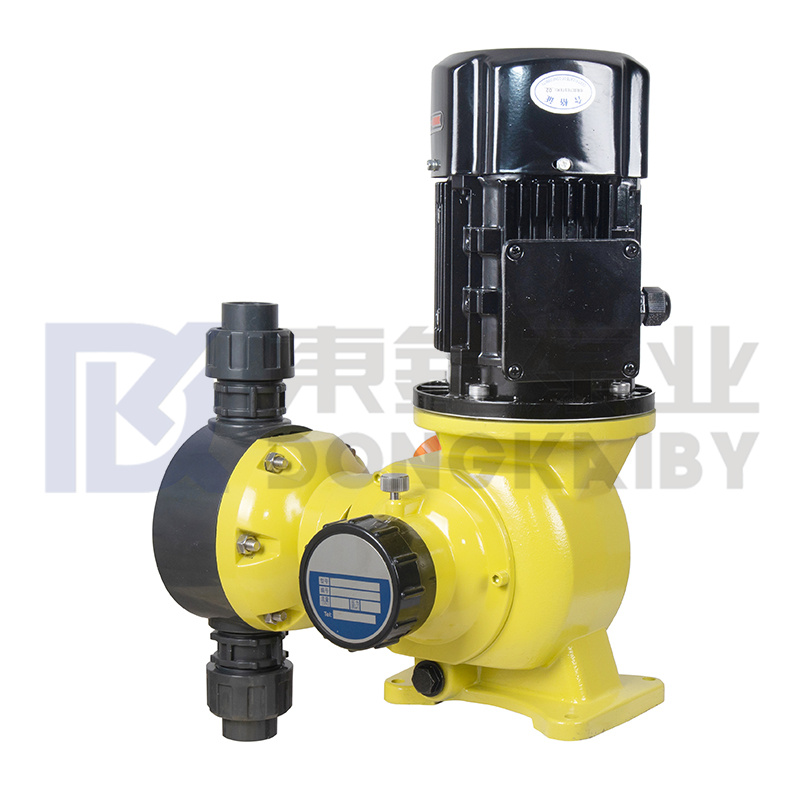Nurturing Nature: The Environmental Harmony of Ammonia Dosers
2024-01-17
Introduction:
As industries worldwide strive for sustainable practices, the role of technology in minimizing environmental impact becomes increasingly crucial. One such technology championing this cause is the Ammonia Doser. This blog explores how Ammonia Dosers contribute to environmental sustainability by addressing pollution, optimizing water treatment, and supporting industries in their commitment to cleaner operations.
1. Reduction of Nitrogen Oxide (NOx) Emissions:
Ammonia Dosers are pivotal components in Selective Catalytic Reduction (SCR) systems, particularly in power generation and industrial facilities. By precisely injecting ammonia into flue gas streams, these dosers facilitate the reduction of nitrogen oxide (NOx) emissions. The result is cleaner air, reduced smog formation, and compliance with stringent air quality regulations, contributing to the overall improvement of environmental air quality.
2. Efficient Nitrogen Removal in Wastewater:
In wastewater treatment plants, Ammonia Dosers play a crucial role in optimizing nitrogen removal processes. By promoting nitrification and denitrification reactions, these dosers contribute to the reduction of nitrogen compounds in effluents. This not only safeguards aquatic ecosystems but also mitigates the risk of eutrophication in receiving water bodies, fostering environmental balance.
3. Contaminant Removal and Water Purity:
Ammonia Dosers aid in the coagulation and flocculation processes in water treatment, leading to the efficient removal of contaminants. By promoting the formation of settleable particles, these dosers contribute to clearer water and a reduction in impurities. This, in turn, enhances the quality of water discharged back into the environment, ensuring minimal ecological impact.
4. Precision Dosing for Resource Efficiency:
The precision dosing capabilities of Ammonia Dosers contribute to resource efficiency. By accurately injecting ammonia based on real-time monitoring and feedback, these dosers minimize chemical waste and energy consumption. This precision not only enhances treatment effectiveness but also reduces the environmental footprint associated with excess chemical usage.
5. Supporting Sustainable Agriculture Practices:
In agriculture, Ammonia Dosers contribute to sustainable practices through controlled-release fertilizers. By delivering precise amounts of ammonia to crops, these dosers optimize nutrient availability. This targeted approach minimizes the risk of nutrient runoff, preventing water pollution and supporting environmentally friendly agricultural practices.
6. Adherence to Environmental Standards:
Ammonia Dosers enable industries to adhere to strict environmental standards and regulations. By controlling ammonia levels and emissions, these dosers support industries in their commitment to responsible and sustainable operations, ensuring compliance with legal frameworks designed to protect the environment.
7. Promoting Circular Economy:
The environmental sustainability of Ammonia Dosers is further amplified when considering their role in circular economy practices. By efficiently treating water, reducing pollutants, and contributing to responsible resource management, these dosers align with the principles of a circular economy, where waste is minimized, and resources are conserved.
Conclusion:
Ammonia Dosers stand as environmental champions, contributing to sustainability across various industries. From reducing NOx emissions to optimizing water treatment processes and supporting cleaner agricultural practices, these dosers exemplify the integration of technology with environmental responsibility. As industries continue to prioritize sustainable practices, the role of Ammonia Dosers in nurturing nature is set to expand, fostering a harmonious coexistence between industrial progress and environmental well-being.



